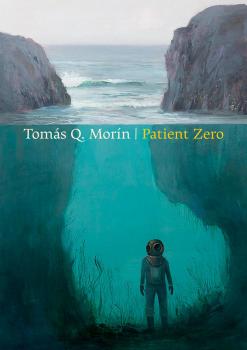ТОП просматриваемых книг сайта:
Зарубежные стихи
Различные книги в жанре Зарубежные стихи, доступные для чтения и скачиванияАннотация
“The heart of Orr’s poetry, now as ever, is the enigmatic image . . . mystical, carnal, reflective, wry.”— San Francisco Review This book-length sequence of ecstatic, visionary lyrics recalls Rumi in its search for the beloved and its passionate belief in the healing qualities of art and beauty. Concerning the Book that is the Body of the Beloved is an incantatory celebration of the “Book,” an imaginary and self-gathering anthology of all the lyrics—both poems and songs—ever written. Each poem highlights a distinct aspect of the human condition, and together the poems explore love, loss, restoration, the beauty of the world, the beauty of the beloved, and the mystery of poetry. The purpose and power of the Book is to help us live by reconnecting us to the world and to our emotional lives. I put the beloved In a wooden coffin. The fire ate his body; The flames devoured her. I put the beloved In a poem or song. Tucked it between Two pages of the Book. How bright the flames. All of me burning, All of me on fire And still whole. There is nothing quite like this book—an “active anthology” in the best sense—where individuals find the poems and songs that will sustain them. Or the poems find them. Gregory Orr is the author of eight books of poetry, four volumes of criticism, and a memoir. He has received numerous awards for his work, most recently the Academy Award in Literature from the American Academy of Arts and Letters. Orr has taught at the University of Virginia since 1975 and was, for many years, the poetry editor of The Virginia Quarterly Review . He lives with his family in Charlottesville, Virginia.
Аннотация
The Lichtenberg Figures , winner of the Hayden Carruth Award, is an unconventional sonnet sequence that interrogates the relationship between language and memory, violence and form. “Lichtenberg figures” are fern-like electrical patterns that can appear on (and quickly fade from) the bodies of people struck by lightning. Throughout this playful and elegiac debut—with its flashes of autobiography, intellection, comedy, and critique—the vocabulary of academic theory collides with American slang and the idiom of the Old Testament meets the jargon of the Internet to display an eclectic sensibility. Ben Lerner , the youngest poet ever published by Copper Canyon Press, is co-founder of No: a journal of the arts . He earned an MFA from Brown University and is currently a Fulbright scholar in Spain.
Аннотация
Name another American poet who has been honored with a limited edition replica of his race-car—“Dan Gerber’s 1965 Shelby R-Model” Gerber is an ordained Zen priest A previous Gerber poetry title received Foreword magazine's “Best Book of the Year” Award Gerber's work has appeared in many national publications, including The New Yorker; Poetry; Playboy; Sports Illustrated; The Nation
Аннотация
"Every line resonates with a wind that crosses oceans."—Jamaal May "Zamora's work is real life turned into myth and myth made real life." — Glappitnova Javier Zamora was nine years old when he traveled unaccompanied 4,000 miles, across multiple borders, from El Salvador to the United States to be reunited with his parents. This dramatic and hope-filled poetry debut humanizes the highly charged and polarizing rhetoric of border-crossing; assesses borderland politics, race, and immigration on a profoundly personal level; and simultaneously remembers and imagines a birth country that's been left behind. Through an unflinching gaze, plainspoken diction, and a combination of Spanish and English, Unaccompanied crosses rugged terrain where families are lost and reunited, coyotes lead migrants astray, and «the thin white man let us drink from a hose / while pointing his shotgun.» From «Let Me Try Again»: He knew we weren't Mexican.He must've remembered his familycoming over the border, or the bordercoming over them, because he drove usto the border and told us next time, restat least five days, don't trust anyone callingthemselves coyotes, bring more tortillas, sardines,Alhambra. He knew we would try again.And again—like everyone does. Javier Zamora was born in El Salvador and immigrated to the United States at the age of nine. He earned a BA at UC-Berkeley, an MFA at New York University, and is a 2016–2018 Wallace Stegner Fellow at Stanford University.
Аннотация
“I will call the voice of this poet a ‘common’ voice… a voice a poet could take into an entire lifetime of memorable writing.” —Philip Levine, Ploughshares This second collection from APR-Honickman winner Tomás Q. Morín explores love gone sideways in the lives of lovers, parents and children, humans and the divine. Patient Zero is filled with voices—of all the people, places, and things that surround a life sick with heartbreak. Doors are the wooden tongues of a house, grocery-store cashiers are gatekeepers to the infinite, and food is the all-powerful life force behind every living thing. From Patient Zero Love is a worried, old heartdisease, as Son House once put it, the very stuffblues are made of, real blues that consist of a male and female, not monkey junklike the “Okra blues” or “Pay Day blues,”though I think House would agreetwo hearts of any persuasion are enough for a real blues,if one of them is sick, that sickly green of a frogbitten in two by the neighbor’s dog, all of whichmakes me wonder about the source of our diseaseand whose teeth first tore the heart after Adamand Eve left the garden?… Tomás Q. Morín's debut poetry collection A Larger Country was the winner of the APR/Honickman Prize. He is co-editor with Mari L'Esperance of the anthology Coming Close, and translator of The Heights of Macchu Picchu by Pablo Neruda. He teaches at Texas State University and in the low residency MFA program of Vermont College of Fine Arts.
Аннотация
"James Galvin has a voice and a world, perhaps the two most difficult things to achieve in poetry."—The Nation "Bleak and unsentimental but blessedly free of self-indulgence, these poems give the feeling of being absolutely essential."—Library Journal "Galvin [has] the virtues of precise observation and original language . . . a rigor of mind and firmness of phrasing which make [each] poem an architectural pleasure."—Harvard Review In his first collection in seven years, James Galvin expands upon his signature spare and gnomic lyric as he engages restrained astonishment, desire, and loss in a confessional voice. Whether considering masterpieces of painting or describing the austere landscape of his native Wyoming ranchlands, Galvin turns to highly imagistic yet intimate narratives to rain down compassion within isolation. From «On the Sadness of Wedding Dresses»: On starless, windless nights like thisI imagineI can hear the wedding dressesWeeping in their closets,Luminescent with hopeless longing,Like hollow angels.They know they will never be worn again.Who wants them now,After their one heroic day in the limelight?Yet they glow with desireIn the darkness of closets. James Galvin passionately depicts the rural American West and the interactions between humans and nature in his best-selling memoir The Meadow and his novel Fencing the Sky. Galvin is also the author of several volumes of poetry and teaches at the Iowa Writers' Workshop. He divides his time between Iowa and Wyoming.
Аннотация
A starred review in Library Journal says this about Eventually One Dreams the Real Thing: “Only a poet as accomplished as Boruch could make such beautiful verse while leading us through the everyday, of life’s subtle, steady shiftings (‘the bird’s hunger, seeking shape’). If the opening image of a pool filled with cruelly dredged up roses bespeaks quiet assent (‘I stood before them the way an animal/ accepts sun’), the next poem turns immediately to progress (and hence progression) as a modern invention beyond the heaven-and-hell alternatives; finally, the poet concedes, ‘I lose track of my transitions.’ In fact, transition defines us. Here, a static painting gives way to ‘between and among,’ a simple typeface never yields a perfect copy, and even in a medieval score, two exquisite quavers are connected by a slur. Highly recommended.” "Marianne Boruch's work has the wonderful, commanding power of true attention: She sees and considers with intensity."—The Washington Post"Boruch refuses to see more than there is in things—but her patience, her willingness to wait for the film of familiarity to slip, allows her to see what is there with a jeweler's sense of facet and flaw."—PoetryIn her tenth volume of poetry, Marianne Boruch displays a historical omnipresence, as she converses with Dickinson, envisions Turner painting, and empathizes with Arthur Conan Doyle. She looks unabashedly at the brutality of recent history, from drone warfare to the disaster in New Orleans from Hurricane Katrina. Poems that turn her gaze towards childhood, nature, animals, and her own poetics are patches of light in the collection's chiaroscuro. From «Before and Every After»:Eventually one dreams the real thing.The cave as it was, what we paid to straddlea skinny box-turned-seat down the middle, narrow boatmade special for the state park, the wet, the trickypassing into rock and underground river.A single row of strangers faced front, each of usbehind another closeas dominoes to fall or we were angels lined uppolitely, pre-flight…Marianne Boruch is the author of ten collections of poetry. She is the 2013 recipient of the Kingsley Tufts Poetry Award, and has taught at Purdue University since the inception of their MFA program. She lives in West Lafayette, Indiana.
Аннотация
Very tuned into popular culture Josh Bell teaches poetry writing workshops at Harvard Josh Bell's first book was named one of Flavorwire's 50 Essential Books of Poetry.
Аннотация
Jim Harrison is one of the leading writers in America His last book of poems, Songs of Unreason, sold 5500 in hardback and hit #1 on the Poetry Foundation Best Sellers List Along with Ted Kooser, W.S. Merwin, and Pablo Neruda, Harrison is one of Copper Canyon’s best-selling poets Every Harrison book Copper Canyon publishes is well reviewed and earns book awards and accolades, including multiple “Book of the Year” listings Another sublime Russell Chatham painting on the cover
Аннотация
Honored as one of «Nine Great Poetry Books of 2014»— The New Yorker “ The Poem She Didn’t Write is a breakup book, full of the kinds of invective and taunts honed by a person who has spent, as all of us have now spent, infinite hours online. Its complex tones arise from the poet’s wanting equally to seduce and to repel a lover whose deepening silence only provokes rhetorical escalation. The effect can be like reading e-mails in someone’s drafts folder—but who wouldn’t want to read Davis’s drafts?"—Dan Chaisson, The New Yorker “Davis’ first full collection in a decade should be stamped with the warning, ‘Buckle up!,’ because entering this writer’s mind is one wild ride of digression, mutation, and syntactical and typographical experimentation… Davis has clearly put the poetic rule book through a shredder, and there’s much to appreciate about that.”— Booklist "There is an eerie precision to her work—like the delicate discernment of a brain surgeon's scalpel—that renders each moment in both its absolute clarity and ultimate transitory fragility."—Rita DoveIn her first full collection in a decade, Olena Kalytiak Davis revivifies language and makes love offerings to her beloved reader. With a heightened post-confessional directness, she addresses lost love, sexual violence, and the confrontations of aging. In her characteristic syntactical play, sly slips of meaning, and all-out feminism, Davis hyperconsciously erases the rulebook in this memorable collection. From «The Poem She Didn't Write»: beganwhen she stopped began in winter and, like everything else, at first, just waited for springin spring noticed there were lilac branches, but no desire,no need to talk to any angel, to say: sky, dooryard, _______,when summer arrived there was more, but not muchnothing really worth notingand then it was winter again—nothing had changed: sky, dooryard, ________, white,frozen was the lake and the lagoon, some froze the ocean(now you erase that) (you cross that out)and so on and so forth . . . Olena Kalytiak Davis is a first-generation Ukrainian American who was born and raised in Detroit, Michigan. Educated at Wayne State University, the University of Michigan Law School, and Vermont College, she is the author of three books of poetry. She currently works as a lawyer in Anchorage, Alaska.










